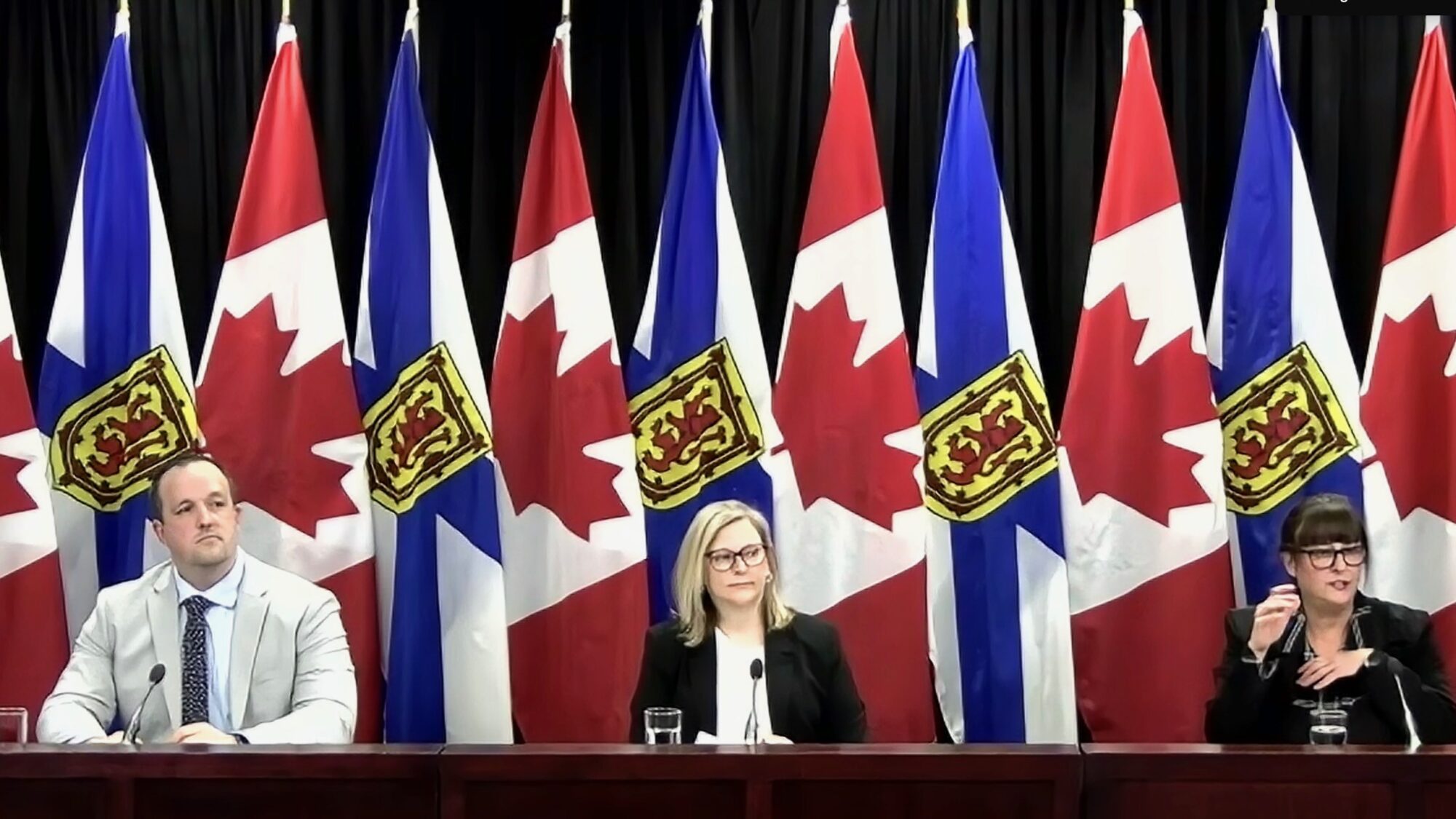Province to open universal mental health-care program
Program targets long wait times for mental health and addictions services

caption
Mental Health Minister Brian Comer, deputy mental health minister Kathleen Trott, and Francine Vezina of the Department of Health announce the first phase of Nova Scotia's universal mental health-care program on Wednesday.Nova Scotia is launching a universal mental health care program the Progressive Conservatives say will improve access to psychological care in the province.
Brian Comer, minister of mental health and addictions, said the initial $10 million in spending will fund up to 250 qualified professionals, including psychologists and social workers, expanding mental health-care access in Nova Scotia.
The first phase, to begin in the spring of 2025, will cover the cost of non-urgent care for Nova Scotians experiencing mood and anxiety disorders.
“This program will help connect more Nova Scotians to the care that they need at no cost,” Comer announced Wednesday. The Progressive Conservatives promised to bring universal mental health care to Nova Scotia in 2021.
The program will have a three-phase approach. The first phase will involve hiring 50 of Nova Scotia’s private-sector clinicians and is primarily for non-urgent care, such as therapy or counselling. The second and third phases involve adding more clinicians and support groups to the publicly funded sector.
The phased approach, Comer said, will help widen access and shorten wait times for needed services.
“We will test and try and learn,” he said.
Comer said Nova Scotians who call the provincial intake line will be assessed for anxiety and mood disorders and may be referred for further support.
He added Nova Scotians should have the same access to mental health care as they have to medical care in the province and that mental health care should be considered normal.
“Seeing a mental-health clinician when you need one shouldn’t be any different than seeing a doctor or a dentist or a pharmacist,” said Comer.
“But it has been different because people who could afford to pay for care are those lucky enough to have private health insurance, have had far more access to mental health and addictions care than those who did not.”
Self referrals
Francine Vezina, executive director of the provincial office of mental health and addictions, said at the announcement that patients won’t have to wait for doctor referrals, and can refer themselves by calling the provincial intake line to be assessed. After, they will be guided to speak with the appropriate professional, using existing Nova Scotia Health Authority pathways.
“We’re hoping with the first level of this program — the first phase — just to alleviate some of the pressure. Nova Scotians need supports, and there’s increased demand in the area of mood and anxiety disorder, and that’s increasing the amount of time that folks are waiting.”
Currently there are 762 registered practising psychologists in Nova Scotia, according to the Nova Scotia Board of Examiners in Psychology. The province said it will leverage all the private sector resources it can, including community-based organizations, private clinicians, as well as universities and their teaching programs.
The Dalhousie Centre for Psychological Health, for example, is a pilot project where people having trouble accessing mental health care can get care that they need, Comer said. The services are provided by PhD students in clinical psychology with supervision from experienced registered psychologists.
“Projects like this fill a gap in our system and will train the next generation of health-care providers,” Comer said.
Kathleen Trott, the province’s deputy minister of addictions and mental health, said at the announcement the opening of the Dalhousie centre has helped alleviate waitlists for people seeking care for autism spectrum disorder and attention deficit hyperactivity disorder.
Trott said the ultimate priority of the universal mental health-care program is healthier people, families and communities.
“It’s all about integration . . . bringing it all together on a strong foundation, making it easier for people to get the care they need from the right provider at the right time.”
According to the Mental Health Commission of Canada, one in five people in Canada lives with a mental illness. Nova Scotians can call the provincial mental health intake line at 1-855-922-1122 if they are in need of non-urgent mental health or addictions care.
About the author

Ariel Mackenzie
Ariel Mackenzie is originally from Toronto. She loves storytelling and has an Honours B.A. in English from Dalhousie University.
